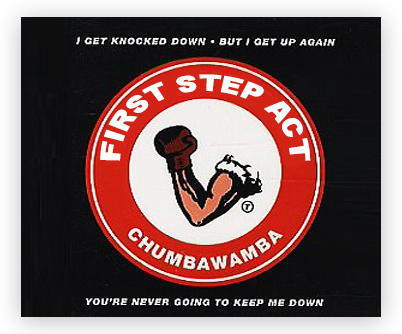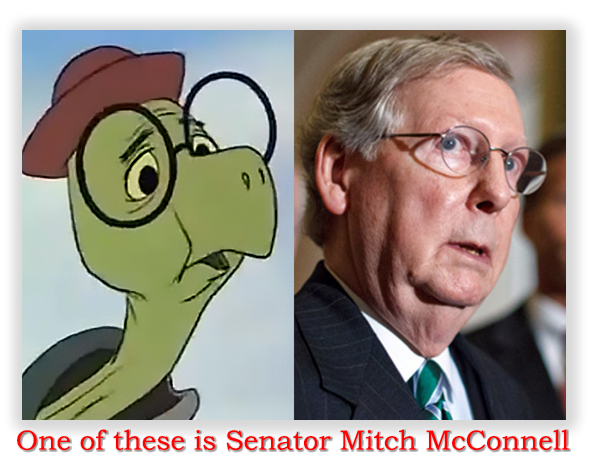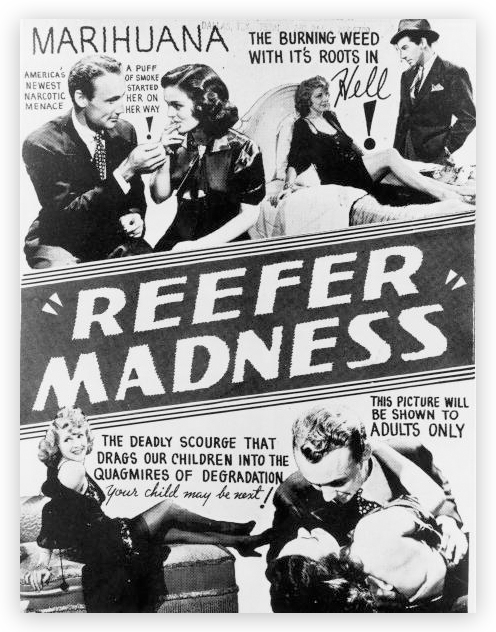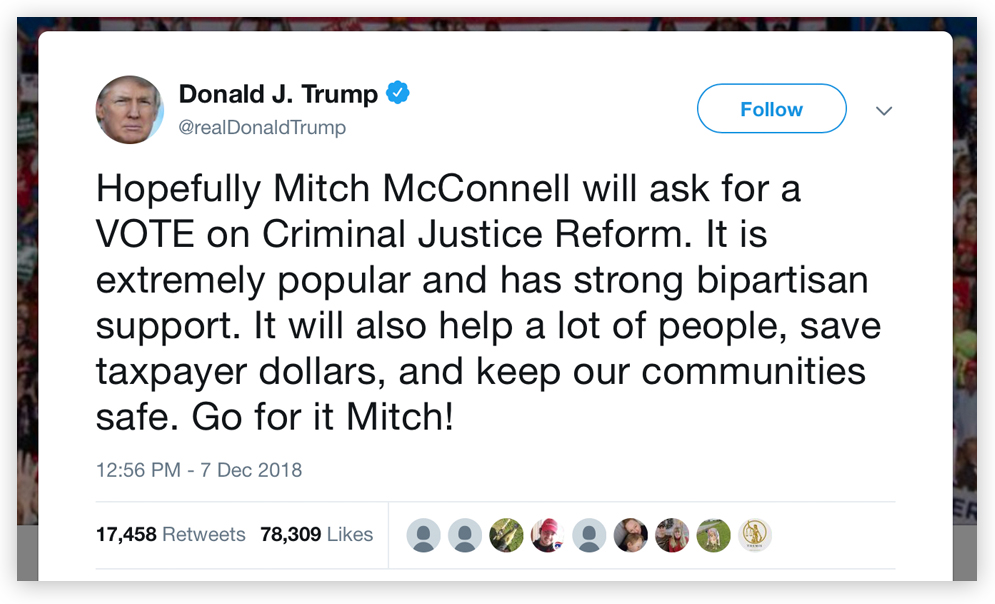We post news and comment on federal criminal justice issues, focused primarily on trial and post-conviction matters, legislative initiatives, and sentencing issues.

FIRST STEP GETS KNOCKED DOWN, BUT IT GETS UP AGAIN, CAN MCCONNELL EVER KEEP IT DOWN?
The lyrics from “Tubthumping,” Chumbawamba’s 1997 hit, describe the FIRST STEP Act’s week. The bill got knocked down early in the week by inaction and demagoguery, to the point that pundits were writing the bill’s obituary last Thursday. But the prison and sentencing reform act stumbled back up again on Friday, with three surprisingly positive developments.
 FIRST STEP is still far from being passed, but the pressure (for a change) is on Senate Majority Leader Mitch McConnell (R-Kentucky) instead of on the bill’s supporters. Sen. John Thune (R-South Dakota) seemed to signal that McConnell may yield to pressure. On Face the Nation yesterday, Sen. Thune said of FIRST STEP, “There are timing issues associated with it but there – at the moment at least there are still some substantive issues that are being resolved. I think if they get that worked out, if they can attract the support of more Republican Senators, there – there’s still an opportunity I think for that to be finished this year, but if not obviously it – it will be taken up again next year-”
FIRST STEP is still far from being passed, but the pressure (for a change) is on Senate Majority Leader Mitch McConnell (R-Kentucky) instead of on the bill’s supporters. Sen. John Thune (R-South Dakota) seemed to signal that McConnell may yield to pressure. On Face the Nation yesterday, Sen. Thune said of FIRST STEP, “There are timing issues associated with it but there – at the moment at least there are still some substantive issues that are being resolved. I think if they get that worked out, if they can attract the support of more Republican Senators, there – there’s still an opportunity I think for that to be finished this year, but if not obviously it – it will be taken up again next year-”
The big news of the week came late on Friday, when President Trump decided to check back in on the bill, and pressured McConnell to bring FIRST STEP to a vote during the crowded lame duck session. After going mostly silent on the bill for several weeks, Trump singled McConnell out on Friday on his Twitter feed:
Trump’s public demands do not guarantee McConnell will bring the bill to a vote. He has told Trump several times that the Senate calendar is too cluttered in December to take up a bill that divides Republicans. As late as Thursday, McConnell had not mentioned the bill at either of two GOP senator meeting, and he has reportedly told senators there’s almost no window to take up the bill this year, according to multiple GOP sources.
One McConnell adviser said the senator does not intend to have a vote on the legislation because he does not have enough time and is more focused on other things — like funding the government and confirming judges. “He doesn’t like the bill,” the Washington Post reported Republican donor Doug Deason, a key White House ally, said of McConnell’s view of FIRST STEP. “He’s a Jeff Sessions-style, lock-them-up-and-throw-away-the-key kind of guy.”
 White House officials say McConnell doesn’t want a vote unless the overwhelming majority of Republicans will vote for it — although both Senate Judiciary Committee Chairman Charles Grassley (R-Iowa) and Sen. Mike Lee (R-Utah) said that 28 or 30 GOP senators support the bill. There are 51 Senate Republicans, and nearly all of the 49 Senate Democrats are expected to back it.
White House officials say McConnell doesn’t want a vote unless the overwhelming majority of Republicans will vote for it — although both Senate Judiciary Committee Chairman Charles Grassley (R-Iowa) and Sen. Mike Lee (R-Utah) said that 28 or 30 GOP senators support the bill. There are 51 Senate Republicans, and nearly all of the 49 Senate Democrats are expected to back it.
McConnell complained at a Wall Street Journal event last week that such a bill requires a week or ten days to consider, while there are only two weeks left before the planned holiday recess and budget bills that must be passed. FIRST STEP advocates argue that it would only take a few days, with a cloture vote capping debate at 30 hours. McConnell acknowledged support on both sides of the aisle but called the legislation “extremely divisive inside the Senate Republican conference,” with more members undecided or opposed than in favor.
“That’s his calling card, protecting his conference,” said Kevin Ring, president of FAMM. The Atlantic suggested yesterday that while past majority leaders like Lyndon Johnson might have strong-armed their members, McConnell waits for near-unanimity among Senate Republicans. “I think he’s not just looking for 60 votes,” said Brett Tolman, a former U.S. Attorney in Utah who also worked as a GOP Senate staffer and now advocates for criminal-justice reform. “He’s looking for a majority of Republicans.”

Earlier in the week, FIRST STEP opponents Sen. Tom Cotton (R-Arkansas), John Kennedy (R-Louisiana) and Ted Cruz (R-Texas) seemed to be on a roll, denouncing FIRST STEP as giving immediate release to sexual predators, drug kingpins and gun-toting gangbangers. But Friday, just before Trump’s renewed support, Sen. Cruz flipped, issuing a press release pledging support:
“I have long supported criminal justice reform. I believe in reducing mandatory minimum sentences for non-violent drug offenders, and providing greater opportunities for offenders to be rehabilitated. At the same time, I do not believe we should be granting early release to violent offenders.
“That is why I drafted an amendment that would exclude violent offenders from being released early. I’m happy to report that, after working closely with the White House and the sponsors of this bill, they have decided to accept my amendment. This new version of the bill resolves my concerns, and is one that I wholeheartedly support and cosponsor.”
 Also, last Friday a leading FIRST STEP opponent announced his support of key planks of the legislation. Larry Leiser, president of the National Association of Assistant U.S. Attorneys, told the Washington Examiner he supports in principle three of four major sentencing reforms included in FIRST STEP.
Also, last Friday a leading FIRST STEP opponent announced his support of key planks of the legislation. Larry Leiser, president of the National Association of Assistant U.S. Attorneys, told the Washington Examiner he supports in principle three of four major sentencing reforms included in FIRST STEP.
The possible turning of the tide seems to have little effect on McConnell’s reluctance to hold a vote. He has angered some GOP senators and created an unusual rift with Sen. Grassley, a longtime McConnell ally. Grassley has spent years building a coalition around FIRST STEP and is pushing hard for a vote this year. “We’ve done what needs to be done,” Grassley said about the overwhelming support for the bill. “So what’s holding it up?”
On Friday, Sen. Lindsey Graham (R-South Carolina) intervened, talking directly to President Trump about attaching the criminal justice legislation to the must-pass year-end spending bill, which is already tangled in a separate fight over funds for the border wall with Mexico. “Just talked with President,” Graham tweeted. “He strongly believes criminal justice reform bill must pass now. He also indicated he supports putting criminal justice reform bill on year-end spending bill which must include MORE wall funding.”
The spending bill will need approval by Dec. 21 to avoid a funding lapse days before Christmas.
On Thursday, Sen. Lee said there were 28 hard “yes” Republican votes plus 49 Democrats for the bill. “It’s rock-solid,” he said. But Sen. John Cornyn (R-Texas), the Senate Republican whip, said more Republicans needed to be convinced. “Right now we have a majority of the Republican conference either undecided or no,” he told reporters. He also continued to call for some changes to the bill.
 Despite Sen. Lee’s assurance that he has 49 Democrat votes in favor of FIRST STEP, The Hill reported Wednesday Democrats who are mulling 2020 presidential bids have split over whether to support FIRST STEP. The decision to support or oppose the bill is a significant policy decision for 2020 Democrat candidates.
Despite Sen. Lee’s assurance that he has 49 Democrat votes in favor of FIRST STEP, The Hill reported Wednesday Democrats who are mulling 2020 presidential bids have split over whether to support FIRST STEP. The decision to support or oppose the bill is a significant policy decision for 2020 Democrat candidates.
Among Republican senators, Sen. Rand Paul (R-Kentucky) told CNN that there’s a generational divide within the party on the issue. “I think there are people who were teenagers in 1937 watching ‘Reefer Madness’ and they’re still concerned that Reefer Madness is going to take over and everybody is going to become zombies, hacking and killing everyone if they smoke pot,” said Sen. Paul, a FIRST STEP supporter. “And then there are a couple of generations after 1937 of people who don’t see it with the same degree of evil.”
The Atlantic, Mitch McConnell Appears to Be Killing Bipartisan Sentencing Reform (Dec. 9)
Politico, Trump leans on McConnell to vote on criminal justice reform (Dec. 7)
The Hill, Criminal justice reform splits 2020 Democrats (Dec. 5)
Washington Examiner, Trump pushes Congress to pass floundering sentencing reform bill (Dec. 7)
Washington Post, McConnell tells White House little chance of Senate vote on criminal justice bill (Dec. 6)
Pittsburgh Tribune, McConnell blocks sentencing bill, upsetting Grassley, GOP (Dec. 7)
– Thomas L. Root


